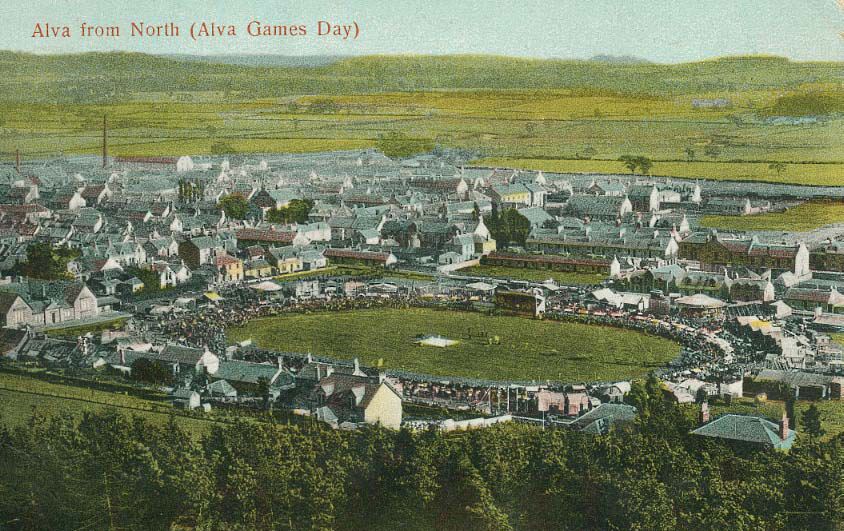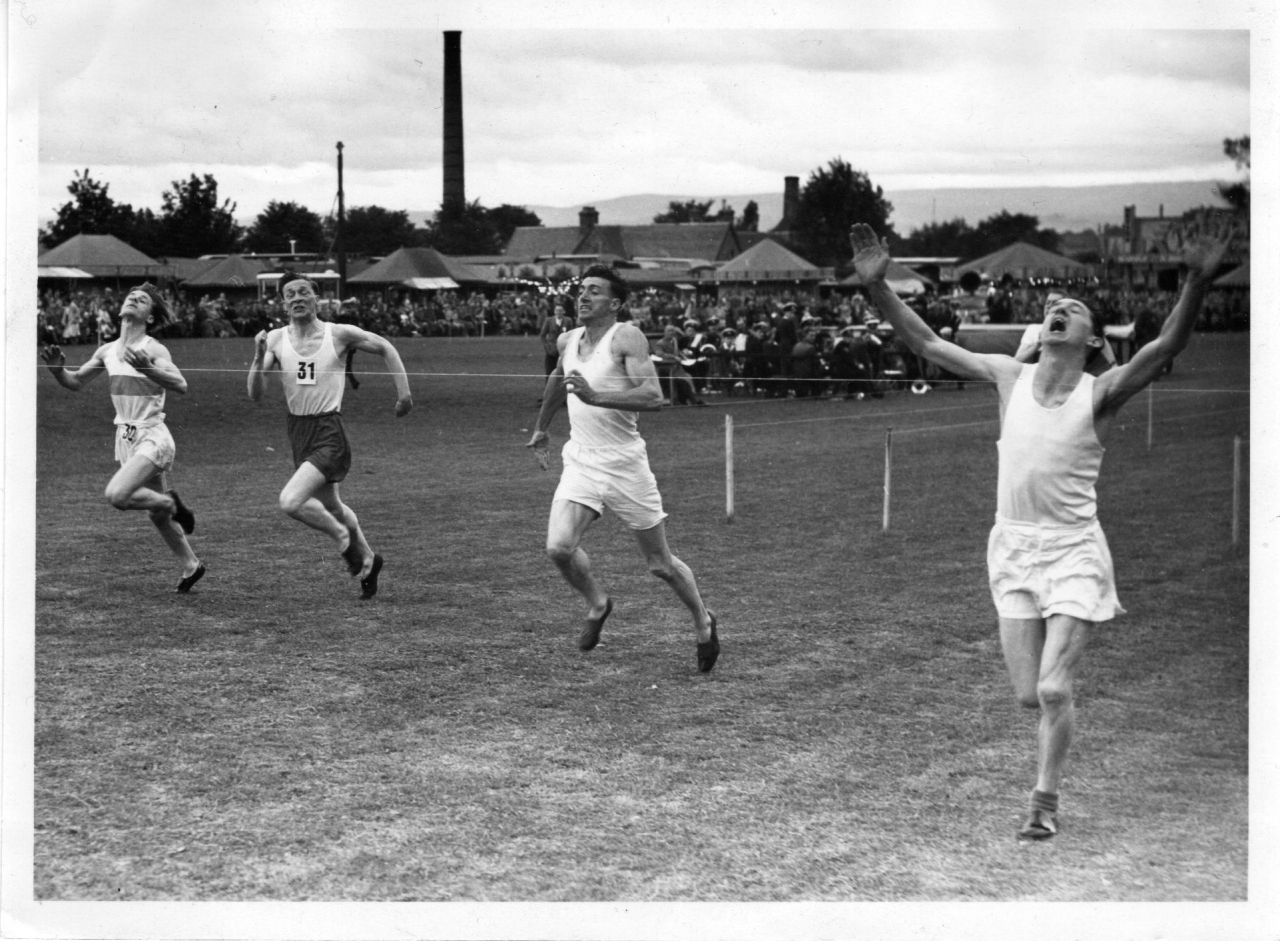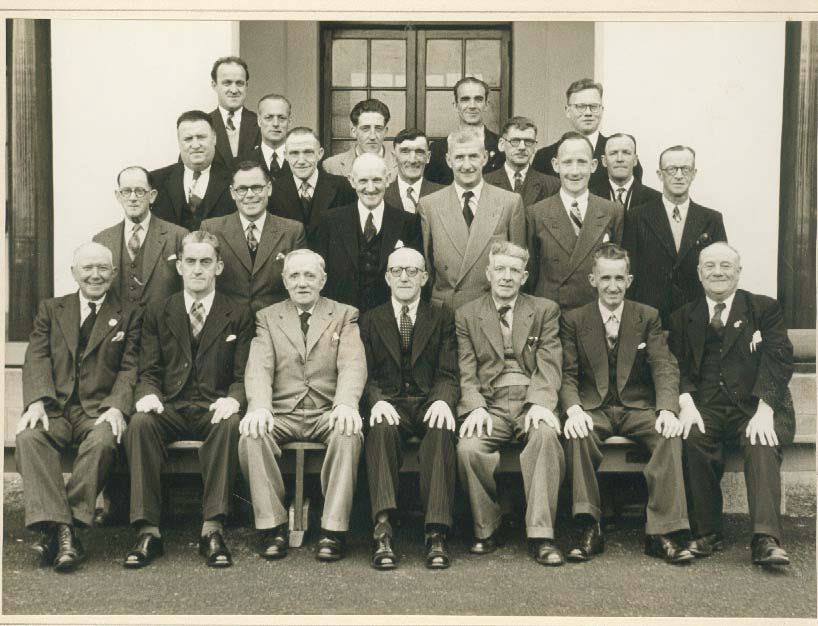Going forward since 1845
The 150th Alva Games now seem like a distant memory. It would probably have been unthinkable to the founding fathers of the Alva Gymnastic Games that the Games would still be around in the second decade of the 21st century but, then again, with the optimism which pervaded most of society in the early Victorian era perhaps it would not. Encouraged by the inspirational works of Robert Burns and by the more contemporary figures like Walter Scott, it had become acceptable once again to think positively of Scottish culture and heritage. The bans which had been imposed following upon the unsuccessful second Jacobite rebellion of 1745 had long since been consigned to the waste bin of history and, exactly a century later, the very first organised Gymnastic Games were held at the foot of the Ochil Hills. A new young Queen had revitalised interest in Scotland and all that that country stood for.
Then, as now, there was great public interest in the health and well being of all of the citizens of the Burgh and, recognising that exercise and personal fitness could play a vital role in improving the overall quality of individual lives, the townsfolk of Alva rallied together to put on gymnastic competitions for display, for competition and, of course, for prizes. This was the age of the steam railways, forging their way northwards towards Inverness, Aberdeen and beyond and even to the now lost station at Alva which closed to passengers in 1956. Steam played a large part in the industrial development of the burgh of Alva with the mills and engineering plants being powered initially by the waters cascading from the Ochils, turning to steam – and the ready supply of local coal and water – for the their motive power. The expansion of the British Empire was at its peak and a positive feeling was in the air.
 We should not forget, however, that these were far from perfect times for the vast majority of the people. The Reform Acts of the 1830’s were relatively new and most people could still not vote. There was no gas or electricity grid and the provision of universal health cover over a century away. Against that background, however, the Gymnastic Games were begun. The early years were simple affairs with a ring being set up in the fields at the edge of the town. The first major change in the fortunes of the games came in 1856 when the park which bears his name was given over to the people of Alva by James Johnstone specifically “for the holding of their annual gymnastic games”. A large public procession preceded the formal hand over and there was huge public acclamation for the generosity of this donation. And in the Johnstone Park, Alva, the games have remained ever since, although not always on the second Saturday in July as the games literature of today will tell you. Records show that the actual date of the games has moved about a fair bit since those early days. Often held on a week day rather than the now traditional Saturday, they were also held in August for a long number of years. A trawl through the minutes and accounts ledgers of the games will show that the second Saturday in July was inspired by the organisers of the first games to be held after the interruption of the Great War between 1914 and 1918. The only other years to be lost were during World War 2 when initially European and later international conflict caused their suspension. And then came 2020 with the horrors of the Coronavirus outbreak which caused a wholesale cancellation of highland games across the country.
We should not forget, however, that these were far from perfect times for the vast majority of the people. The Reform Acts of the 1830’s were relatively new and most people could still not vote. There was no gas or electricity grid and the provision of universal health cover over a century away. Against that background, however, the Gymnastic Games were begun. The early years were simple affairs with a ring being set up in the fields at the edge of the town. The first major change in the fortunes of the games came in 1856 when the park which bears his name was given over to the people of Alva by James Johnstone specifically “for the holding of their annual gymnastic games”. A large public procession preceded the formal hand over and there was huge public acclamation for the generosity of this donation. And in the Johnstone Park, Alva, the games have remained ever since, although not always on the second Saturday in July as the games literature of today will tell you. Records show that the actual date of the games has moved about a fair bit since those early days. Often held on a week day rather than the now traditional Saturday, they were also held in August for a long number of years. A trawl through the minutes and accounts ledgers of the games will show that the second Saturday in July was inspired by the organisers of the first games to be held after the interruption of the Great War between 1914 and 1918. The only other years to be lost were during World War 2 when initially European and later international conflict caused their suspension. And then came 2020 with the horrors of the Coronavirus outbreak which caused a wholesale cancellation of highland games across the country.
And Gymnastic games they remained until well into the second half of the twentieth century but by this time the games had developed into something much more like what you will be watching today. Traditional events such as running were and are still a major component of what is on offer at the games. It was at Alva in 1871 that the first highland games cycling took place. An old Scots favourite, quoiting, used to feature in the programme (this is now held, as far as we know, only at a few games) but has now disappeared as, sadly, have wrestling, light field events such as high jump and pole vault and the former finale event of pony trotting. A more health and safety conscious society combined with the reduction in the size of the arena after the building of the extension to the former Alva Academy, also now lost to the developers wrecking ball, meant that pony trotting was deemed to be impractical and potentially unsafe. Their memory lingers on. With their passing, other events came to take their place. A full range of highland dancing, the full programme of heavy strength events, races for children, youths and visitors and, of course, the hill races. Although there are now four age-restricted competitions the hill race, originally known just as the Endurance Race, has always captivated the runners and the audience alike. It is a unique event with almost every inch of the race from starting pistol to finishing line being visible to the crowds in the arena below Torry.
 Since the beginning, the ring at Alva has been surrounded by the attractions of the travelling fair now organised by the members of the Scottish Section of the Showmen’s Guild of Great Britain. Their continuing presence has ensured that the compact atmosphere of the arena is assured helping to build the feeling of anticipation and excitement as the events of the day unfold. Originally, competitions were restricted to local athletes only but with the passage of time this changed until we now have open competition of the most truly international kind. Dancers from Australia, Canada and the USA are to be found here regularly. We have had heavyweight athletes from Holland, Germany, Poland, Australia, USA, Canada and Finland and the entries in our hill races have come from throughout the British Isles with overseas runners from France, Catalonia, Belgium, USA and the Czech Republic. Our Visitors’ Book tells us that the spectators are now also truly worldwide with recent visitors from across Europe, Southern Africa, North America and even from Thailand!
Since the beginning, the ring at Alva has been surrounded by the attractions of the travelling fair now organised by the members of the Scottish Section of the Showmen’s Guild of Great Britain. Their continuing presence has ensured that the compact atmosphere of the arena is assured helping to build the feeling of anticipation and excitement as the events of the day unfold. Originally, competitions were restricted to local athletes only but with the passage of time this changed until we now have open competition of the most truly international kind. Dancers from Australia, Canada and the USA are to be found here regularly. We have had heavyweight athletes from Holland, Germany, Poland, Australia, USA, Canada and Finland and the entries in our hill races have come from throughout the British Isles with overseas runners from France, Catalonia, Belgium, USA and the Czech Republic. Our Visitors’ Book tells us that the spectators are now also truly worldwide with recent visitors from across Europe, Southern Africa, North America and even from Thailand!
The games at Alva have survived at a time when many other similar gatherings locally have perished. No more will the crowds roar home the runners at Sauchie or Alloa games just a few miles south of here. Times have not always been good for Alva. The complete loss of the woollen mills and light engineering in the area not only robbed many local people of their main source of income, it also deprived the games of invaluable support in the form of sponsorship and patronage. It has been many years since the entrance fee alone was capable of sustaining the level of expense involved in running the games.
 Rainy days are all too possible in Scotland’s temperate climate and nothing new if the records of a hundred years ago are to be believed since “just at close of competition, the roar of thunder could be heard crashing in the distance above the games”. Hopefully not today. An unsung consequence of the foot and mouth outbreak of 2001 was the cancellation of the hill races and the rains of 2002 would certainly have caused the first weather induced cancellation of the games were it not for the very timely intervention of the local fire service who gallantly pumped hundreds of gallons of water from the field. There were no records broken on the rain sodden ground that year!
Rainy days are all too possible in Scotland’s temperate climate and nothing new if the records of a hundred years ago are to be believed since “just at close of competition, the roar of thunder could be heard crashing in the distance above the games”. Hopefully not today. An unsung consequence of the foot and mouth outbreak of 2001 was the cancellation of the hill races and the rains of 2002 would certainly have caused the first weather induced cancellation of the games were it not for the very timely intervention of the local fire service who gallantly pumped hundreds of gallons of water from the field. There were no records broken on the rain sodden ground that year!
As you will see, Alva games have adapted to suit the times in which they operate. They have had to. In doing so, however, they have lost none of the objectives or ideals of the founders of this great event. The promotion of health. The vitality and excitement of good and fair competition. The production of a spectacle for all, competitor and spectator alike, local, national or international. They have been in existence for over 170 years. Who can say if they will be here in another 170? We can say, however, that they are entitled to be proud of their reputation as The Famous Alva Games.
